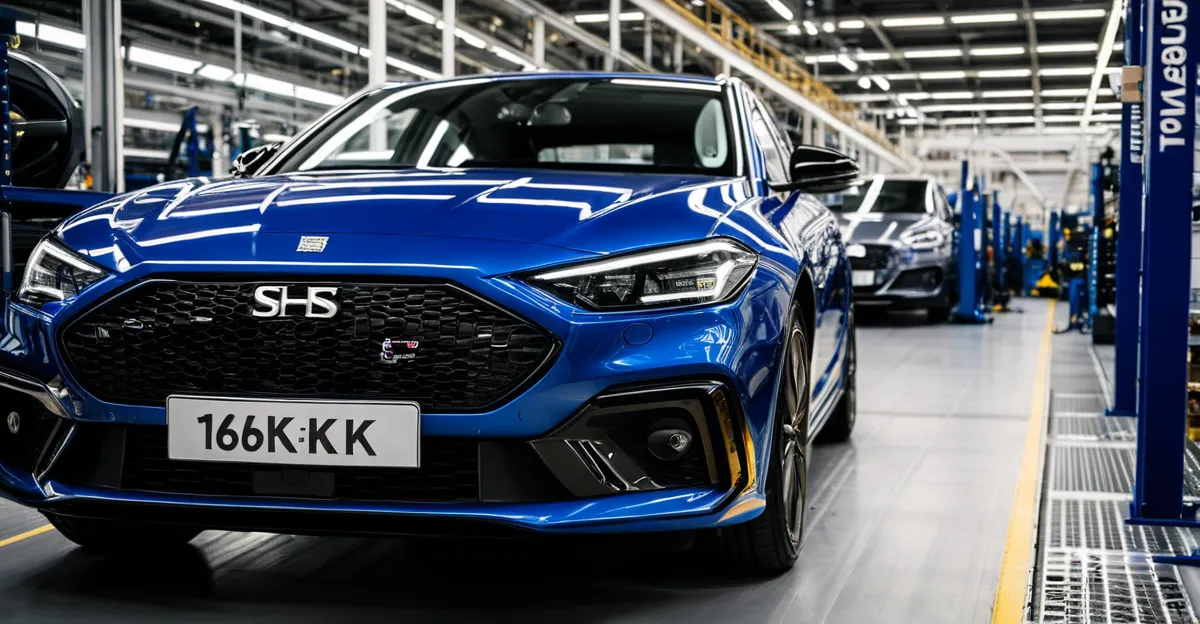Immediate impacts of Brexit on the UK automotive supply chain
Brexit triggered significant supply chain changes for the UK automotive industry, primarily due to the introduction of new customs procedures at UK-EU borders. These new requirements have led to mandatory customs checks that previously did not exist, creating delays in the movement of parts and finished vehicles. For manufacturers that rely on just-in-time manufacturing, these delays have caused disruptions, forcing adaptations to avoid production stoppages.
The increased complexity of customs declarations and inspections has resulted in higher administrative burdens and longer border wait times. This shift directly impacts production schedules and causes increased lead times. Moreover, these immediate disruptions have elevated costs across the supply chain, including tariffs, inspection fees, and logistical expenses.
In parallel : How are UK car manufacturers addressing the skills gap in the industry?
Manufacturers and suppliers have faced sudden and pressing challenges as they navigate this new landscape. These costs are often passed down the supply chain, affecting competitiveness and profitability. Understanding these immediate impacts helps explain why many companies are reassessing their sourcing and inventory strategies in response to Brexit’s direct influence on the UK automotive supply chain.
Tariffs, trade barriers, and regulatory divergence
Brexit introduced significant tariffs and new trade barriers on automotive parts and finished vehicles moving between the UK and EU markets. Tariffs, imposed due to the UK leaving the EU Customs Union, immediately increased costs for manufacturers relying on cross-border component sourcing. This has pressured suppliers and manufacturers to reconsider their procurement strategies to mitigate added expenses.
In the same genre : How is the UK automotive industry preparing for a shift to electric mobility?
Another profound effect is the regulatory divergence between UK and EU automotive standards. Post-Brexit, the UK has begun to develop independent vehicle safety and emissions regulations, diverging from the harmonised EU framework. This creates additional compliance challenges. Manufacturers must now ensure that products meet both UK and EU standards when targeting these markets, increasing complexity and cost.
Sourcing automotive components from EU suppliers also faces hurdles caused by new customs controls, tariffs, and regulatory checks. These factors complicate supply chains, disrupt delivery schedules, and necessitate extra administrative resources to maintain compliance. Together, tariffs, trade barriers, and regulatory divergence constitute major disruptions that require focused adaptation to sustain the UK automotive sector’s competitiveness.
Labour shortages and workforce challenges
Brexit has intensified labour shortages within the UK automotive sector by restricting the availability of both skilled and unskilled workers. Changes to immigration policies have reduced the influx of EU nationals who previously filled many essential roles in manufacturing and supply operations. This limitation has led to a significant workforce impact, straining companies that rely on a steady labour supply.
Automotive manufacturers now face growing difficulties in recruiting and retaining staff. The reduced labour pool contributes to wage pressures, as firms compete to attract qualified personnel, increasing operational costs. This challenge affects not only manual labour but also technical and engineering roles, which are critical for maintaining production quality and efficiency.
Consequently, productivity suffers as vacancies remain unfilled or are filled by less experienced workers. These workforce challenges have forced many companies to rethink recruitment strategies, invest in training, and automate certain processes where possible. Addressing labour shortages is crucial for sustaining operational efficiency and meeting production targets amid Brexit-driven disruptions in the UK automotive supply chain.
Cost increases and competitive pressures
Brexit has significantly driven up supply chain costs across the UK automotive sector. Manufacturers face higher operational costs due to increased customs declarations, tariffs, and border inspections, which add both time and financial burdens. These expenses strain already tight profit margins and force companies to reassess pricing strategies.
Logistics costs have surged as longer border wait times disrupt delivery schedules, leading to inefficiencies and the need for expedited transport services. Additionally, import tariffs on automotive parts and raw materials further elevate production expenses. These cost increases ripple through the supply chain, affecting suppliers and downstream manufacturers alike.
The combined effects create a tangible competitive disadvantage for UK producers compared to their EU counterparts. While EU-based companies benefit from tariff-free trade and fewer border delays, UK firms must absorb extra charges or pass them onto customers, risking reduced market share. To remain viable, many manufacturers are exploring cost-control measures, such as supply chain optimisation and automation.
Understanding these escalating costs helps clarify the persistent pressures on the UK automotive industry and underscores the need for strategic adaptations to mitigate Brexit’s financial challenges.
Adaptations and strategic responses in the sector
Brexit impact on UK automotive supply chains has prompted firms to adopt various adaptation strategies focused on building resilience. One common approach is increasing inventory buffers to reduce dependence on just-in-time delivery, mitigating risks from customs procedures and border delays. Holding extra stock cushions manufacturers against supply interruptions caused by unpredictable border checks.
Another strategic response involves reshaping supply chains by localising sourcing or shifting supplier bases outside the EU. This reduces exposure to tariffs and complex trade barriers, easing compliance burdens. Some manufacturers prioritise suppliers within the UK or in countries with favourable trade agreements, improving supply chain stability.
Automation and digitisation also play critical roles in adapting to new customs procedures. By streamlining administrative tasks and enhancing tracking, firms aim to cut delays and contain operational costs. These innovations help offset increased workload caused by Brexit’s customs changes.
These adaptive measures reflect a broader industry shift towards supply chain resilience, emphasizing flexibility and risk management. Firms that proactively adjust sourcing, inventory, and operational strategies are better positioned to withstand ongoing Brexit disruptions and maintain competitiveness.



